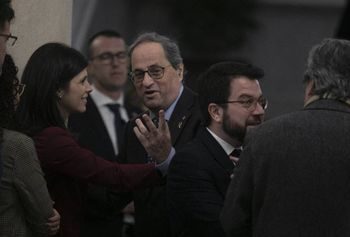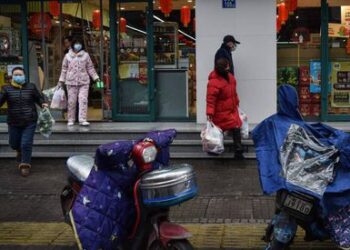
Ten years after dropping out of the front lines of Europe’s institutions, Spain is back in one of the top posts. Acting Foreign Minister Josep Borrell is set to become the new EU High Representative for Foreign Affairs and Security Policy, a position he will take up in November.
There were five leadership roles up for grabs, including president of the European Commission and president of the European Central Bank. On Tuesday the European Council announced the appointments, which will be subject to a vote of consent in the European Parliament.
“Spain is back,” said acting Prime Minister Pedro Sánchez of the Spanish Socialist Party (PSOE), alluding to the fact that Borrell’s new job was held by another Spaniard, Javier Solana, between 1999 and 2009.
But the fact is that the High Representative is the least powerful of all the roles that were shared out on Tuesday. Spain – and the entire European social-democratic family, in whose name Sánchez was negotiating – had been aiming to place a Socialist at the helm of the European Commission, the executive branch of the EU.
But Sánchez celebrated the appointment regardless, saying that Borrell’s scope for action is going to grow: besides heading EU diplomacy and coordinating defense policies to some degree, the High Representative will soon also be in charge of humanitarian aid and the international aspects of immigration policy.
“We have made possible the appointment of an accredited and experienced person to helm a vital position for foreign policy and common defense,” said the Spanish leader at a news conference that followed a lengthy European summit.
The position currently held by Federica Mogherini already includes some supervision of humanitarian and development aid policies. The representative also coordinates certain aspects of immigration, such as the bilateral agreements with countries of origin and transit, signed to contain departures and encourage local development.
The representative’s scope for action is limited when faced with major challenges
Sánchez noted that Borrell will have an annual budget of €14 billion to work with – if the EU financial blueprint prospers – and 4,000 employees working for him.
The position, as it is currently structured, exists since 2011, and the goal is to make it the management tool for the EU’s external relations. Back in Solana’s day, the High Representative had fewer tasks and lacked the logistical backing it enjoys today.
Yet reality shows that the representative’s scope for action is limited when faced with major challenges. Although this department has played an instrumental role in landmark events such as the signing of a nuclear deal with Iran or imposing economic sanctions on Russia after the annexation of Crimea, it has been far less relevant on matters such as the war in Syria.
But Spain is hoping that the symbolic increase in powers and Borrell’s own background will lend new weight to the role. The 72-year-old is a veteran politician who served as president of the European Parliament between 2004 and 2007 and as a Socialist minister back home.
English version by Susana Urra,
Get real time update about this post categories directly on your device, subscribe now.





















